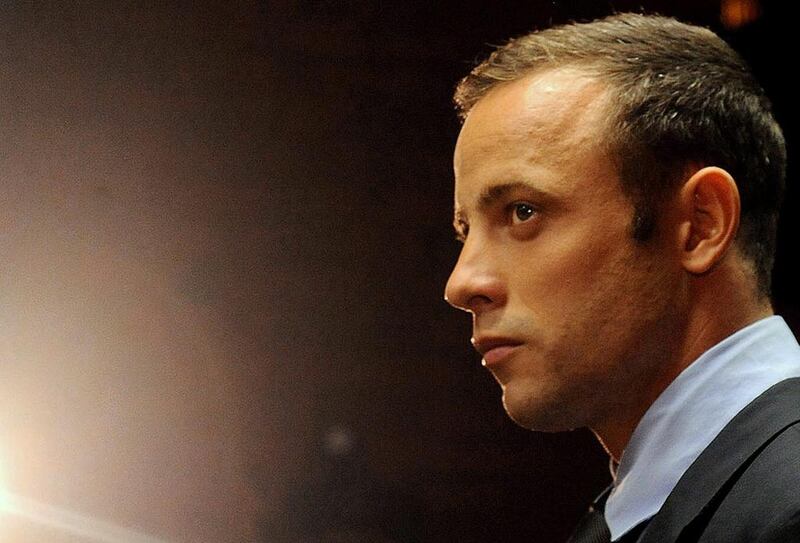In June 1976, tens of thousands of black students took to the streets of Soweto in South Africa to protest against the introduction of Afrikaans as the lingua franca of the apartheid-era education system. Protesters attempted to hold a peaceful march through Soweto, one of the largest townships, but were met with brute force from the police. Sixty-nine unarmed students were killed in what is widely considered a turning point in the anti-apartheid struggle in South Africa and across the world.
Twenty years after the introduction of democracy in South Africa, students are again protesting as corruption runs rampant and economic inequality deepens. More than 10,000 students took to the streets last Friday in the largest student demonstration since the Soweto uprising to protest over a scheduled fee increase for next year. Access to education is one of the biggest obstacles to equality for the black majority in one of the most unequal societies in the world.
The state’s reaction was hardly surprising. It ordered the police to use heavy-handed tactics such as water cannon, tear gas, stun grenades and rubber bullets instead of addressing the fundamental issues of accountability that are being exposed by the protests.
President Jacob Zuma attempted to placate the protest movement by announcing that there would be no increase in tuition fees next year. But this is too little, too late. In 2007, Mr Zuma’s African National Congress (ANC) agreed at its annual conference that the government would implement free education for the poor. It was Mr Zuma’s job to see this policy through. Eight years later, nothing has been done.
This grass roots movement for accountability is only now finding its voice and feet. At the heart of this process, and many others like it in South Africa, lies the question of corruption and equality. The unravelling of the apartheid system of racial segregation in 1994 failed to bring with it a redistribution of resources and financial capital.
The economic systems that privileged a handful of white South Africans under apartheid largely remains in place. Senior members of the ANC personally enriched themselves during the democratic transition by taking high-level positions in a variety of private companies that depend on lucrative government contracts and access.
Many of these quasi-state companies, such as South African Airways, have received government bailouts while the economic burden has been placed on poor students with rising tuition costs. While a small, black middle class has struggled to grow in such an economic climate, the majority-black population remains poor and powerless.
The grease propelling this unequal system of government is widespread corruption and it is visible in all sectors of society. Mr Zuma has been the subject of an ongoing investigation for spending $23 million (Dh84.5m) of government money on his presidential residence. Citing apartheid-era legislation, Mr Zuma has legitimised the money he has lavished on his personal life and home with bizarre security excuses.
At the same time, the ANC has threatened unsupportive members of the media and, this month, Mr Zuma essentially stated that private businesses must be friendly and obedient to the government, otherwise public contracts will be more difficult to obtain.
Privilege is alleged in how societies – in particular, emerging-market societies – treat their politicians and celebrities when they break the law. Thirteen years ago, the Bollywood actor Salman Khan ran over Nurullah Sharif, a homeless man sleeping on a pavement in Mumbai. Khan’s case became one of 31 million backlogged cases in the Indian court system, while he has been able to continue with his life as if nothing happened. He was even granted bail within three hours of being found guilty of culpable homicide.
In a similarly illustrative event this month, South African Olympian Oscar Pistorius was released to house arrest at his uncle's mansion in Johannesburg. The double-amputee runner fatally shot his girlfriend, Reeva Steenkamp, in 2013.
After a trial that garnered international interest, a South African judge acquitted Pistorius of murder but found him guilty of culpable homicide, or manslaughter. He was given a five-year sentence and, under South African law, was able to move to house arrest after exactly one year in jail.
Pistorius’s defence lawyers argued that he had thought Steenkamp was an intruder and killed her by mistake. His arguments tapped into a widespread fear mentality that exists in South Africa due to rampant violent crime and severe economic inequality.
The suspicion remains that, had Pistorius not enjoyed the protection that celebrity status and wealth afford, he would still be behind bars for the death of his girlfriend. In South Africa, money can buy freedom.
While the student tuition protests and the Pistorius verdict might not seem all that similar on the surface, they are both clear examples of an ill-functioning society. A culture of corruption intimately tied to the process of dismantling the apartheid regime pervades South African society from the highest levels of political power to the treatment of celebrities who break the law and the ability to attend university.
While the country is often justly held in high regard for its recent democratic achievements, the process remains unfinished; much work remains to be done in all sectors of society for the country to be truly free. Now, a generation born free from the direct oppression of apartheid is demonstrating that it is ready to shape the country's future. The consequences will be dramatic.
jdana@thenational.ae
On Twitter: @ibnezra





